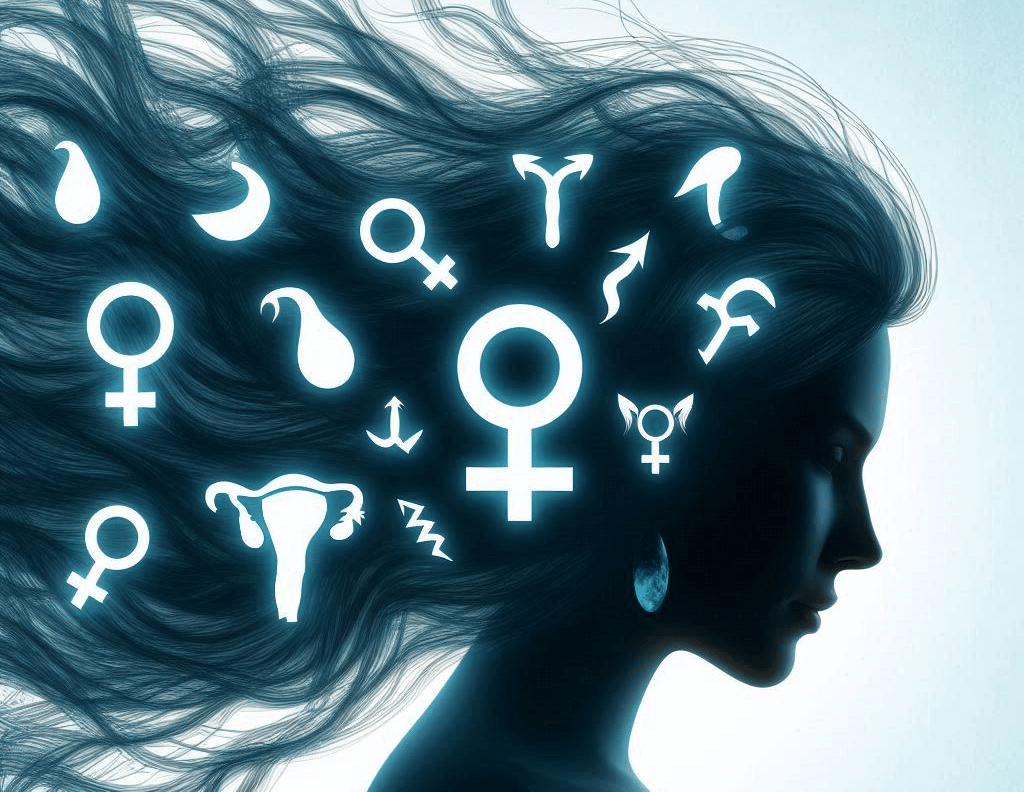Hormonal Changes and Their Impact on Women’s Health
Explore the intricate world of hormonal changes and their profound impact on women’s health. From puberty to menopause, this blog delves into the various stages of hormonal fluctuations and offers practical tips for managing their effects naturally. Learn about the importance of a balanced diet, regular exercise, stress management, and other lifestyle practices that can help maintain hormonal balance. Whether you’re navigating the challenges of PMS, pregnancy, or menopause, this comprehensive guide provides valuable insights to support your well-being. Join us in advocating for women’s health and empowering each other through every stage of life.
9/28/20242 min read


Hormones play a crucial role in regulating various bodily functions, and their fluctuations can significantly impact women’s health and behavior. From puberty to menopause, women experience several hormonal changes that can affect their physical and mental well-being. This blog post explores these changes and offers insights into managing their effects.
1. Puberty: The Beginning of Hormonal Changes
Puberty marks the onset of significant hormonal changes in a woman’s life. The increase in estrogen and progesterone levels leads to the development of secondary sexual characteristics and the onset of menstruation. These hormonal shifts can also influence mood and behavior, often resulting in mood swings and emotional sensitivity.
2. Menstrual Cycle: Monthly Hormonal Fluctuations
The menstrual cycle is characterized by cyclical changes in hormone levels, primarily estrogen and progesterone. These fluctuations can cause premenstrual syndrome (PMS), which includes symptoms like irritability, anxiety, and depression. Understanding the menstrual cycle can help women anticipate and manage these changes more effectively.
3. Pregnancy: A Surge in Hormones
During pregnancy, the body undergoes a dramatic increase in hormones such as human chorionic gonadotropin (hCG), estrogen, and progesterone. These hormonal changes support fetal development but can also lead to mood swings, fatigue, and changes in appetite. Postpartum hormonal shifts can contribute to conditions like postpartum depression, highlighting the need for support and awareness during this period.
4. Perimenopause and Menopause: The Transition Phase
Perimenopause is the transitional phase leading up to menopause, characterized by irregular menstrual cycles and fluctuating hormone levels. Symptoms such as hot flashes, night sweats, and mood changes are common during this time. Menopause marks the end of menstrual cycles and a significant decline in estrogen levels, which can affect bone density, cardiovascular health, and mental well-being.
Managing Hormonal Changes
Understanding and managing hormonal changes is crucial for maintaining overall health. Here are some strategies:
Healthy Diet: A balanced diet rich in fruits, vegetables, and whole grains can help stabilize hormone levels.
Regular Exercise: Physical activity can improve mood and reduce symptoms of PMS and menopause.
Stress Management: Techniques such as yoga, meditation, and deep breathing can help manage stress and hormonal fluctuations.
Medical Support: Consulting healthcare professionals for hormonal therapies or medications can provide relief from severe symptoms.
Natural Tips for Balancing Hormones
In addition to the above strategies, here are some natural tips to help balance hormones:
Adequate Sleep: Aim for 7-9 hours of quality sleep each night to support hormonal balance.
Hydration: Drink plenty of water to help your body maintain optimal function.
Healthy Fats: Include sources of healthy fats like avocados, nuts, and seeds in your diet to support hormone production.
Herbal Supplements: Consider natural supplements like maca root, ashwagandha, and evening primrose oil, which may help balance hormones. Always consult with a healthcare provider before starting any new supplement.
Limit Sugar and Refined Carbs: Reducing intake of sugar and refined carbohydrates can help prevent insulin resistance and support hormonal health.
Mindful Eating: Practice mindful eating to avoid overeating and support digestive health, which is closely linked to hormonal balance.
Hormonal changes are a natural part of a woman’s life, influencing her physical and mental health. By understanding these changes and adopting healthy lifestyle practices, women can better manage their well-being. Let’s continue to advocate for women’s health and support each other through these transitions.
